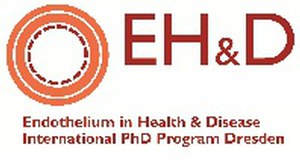Research Groups
On this pages you will find additional information to the research groups.
Research Groups
Georg Breier's group - Endothelial Cell Biology / Pathology
Our research group is interested in the biology and pathology of endothelial cells, with specific focus on the formation of new blood vessels (angiogenesis) during mouse development and in tumors. Several lines of evidence suggest that oxygen sensing in endothelial cells is of great importance for blood vessel growth and function. We are therefore studying the role of recently identified oxygen-sensitive signaling pathways in endothelial cells in various angiogenesis models. Central to these pathways are transcriptional regulators called hypoxia inducible factors (HIF), as well as HIF hydroxylases that control HIF stability and activity. Our approach is to combine in vitro and in vivo models, including transgenic and conditional knockout mice, to unravel the function of these signaling systems in endothelial cell growth, differentiation, and degeneration. This knowledge will be valuable for the development of novel therapeutic strategies aimed at fighting cancer, or promoting tissue regeneration. [http://www.pathologie-universitaetsmedizin-dresden.de/breier.html]
Trian Chavakis's group - Inflammation and Angiogenesis
[http://www.digs-bb.de/digs-bb/research-groups/Chavakis]
Andreas Deussen's group - Physiology
Myocardial ischemia and vessel degeneration are major challenges in aging populations. We are focussing on new approaches to prevent heart and vessel degeneration and to protect vascular function, particularly endothelial cell function. An early pathophysiological event in the development of atherosclerosis is endothelial dysfunction and vessel wall inflammation. A key compound modulating the underlying interaction of leukocytes and the endothelium is the nucleoside adenosine. Our goal is to clarify how various pharmacological, endogenous and dietary compounds may protect the endothelium via modulation of adenosine metabolism or membrane transport.
Another major issue in the context of vessel transplantation is the impact of cold storage on endothelial structure and function. We are testing newly designed solutions which better protect the endothelial cells during extended periods of cold storage. Recent progress of our lab documents the feasibility to maintain endothelial function of human vessel segments for more than 1 week, potentially benefitting vessel recipients with proper vessel grafts in the future. [https://tu-dresden.de/med/mf/phy]
Richard Funk's group - Anatomy
[http://tu-dresden.de/die_tu_dresden/fakultaeten/medizinische_fakultaet/inst/ana]
Edmund Koch's group - Clinical Sensoring and Monitoring
This team consists of staff with mainly technical background. We are a scientific-technical research department in immediate cooperation with medical research. Our specialty is the development of optical imaging modalities and sensors and their integration into apparatuses for living cells, isolated organs, in-vivo experiments and non-invasive human measurements. In addition to established applications in ophthalmology and dermatology, new Optical Coherence Tomography (OCT) developments in the domain of atherosclerosis diagnostics, endoscopy, intensive care medicine and oncology are in development.
Our main fields of research are:
- DFG main research “Protective ventilation strategies” (Real-time and 3D OCT of the dynamics of subpleural alveoli of the ventilated and perfused isolated rabbit lung; Cell culture chamber for the application of strain and flow induced stress on lung epithelial cells at the air-liquid interface)
- In vivo imaging of pathologically modified blood vessels and vasodynamic parameters by optical coherence tomography to study the development of atherosclerosis
- Flow measurements by Doppler OCT in the spectral domain
- Localisation of the germinal disc in unbreeded chicken eggs for sexing by infrared spectroscopy
- In situ spectroscopic cell analysis and methodical development of optical screening techniques
- Analysis of boiling processes on hot surfaces
- Development of different OCT scanner heads for medical and industrial applications
- Dual band OCT (combination of different wavelengths to improve resolution and penetration depth into tissue)
- Combination of fluorescence microscopy and OCT
- Development of new OCT systems with higher speed, new light sources and higher resolution
[http://www.tu-dresden.de/medksm/index.htm]
Henning Morawietz' group - Vascular Endothelium and Microcirculation
Endothelial cells play a major role in the development and differentiation of the vascular system. The development of a functional vascular system is crucial to the survival of regenerating tissue. Risk factors such as oxidative stress and low-density lipoproteins can accelerate endothelial dysfunction and arteriosclerosis. Our studies attempt to understand the molecular mechanisms underlying these processes and to develop therapeutic strategies in the treatment of cardiovascular diseases. Using techniques of molecular and cell biology, transgenic models and clinical studies we address the following:
- What is the role of endothelial dysfunction in the development of vascular diseases?
- Is the increased formation of reactive oxygen species and oxidized lipoproteins involved in these processes?
- How can endothelial cells be differentiated into an arterial or venous phenotype?
- What are the molecular mechanisms of the formation of new blood vessels?
Thomas Noll's group - Physiology
[https://tu-dresden.de/med/mf/phy]
Vladimir Todorov's group - Nephrology
[http://mk3.awiconserver.de/html/de/nephrologiedialyse/unserteam.html]

